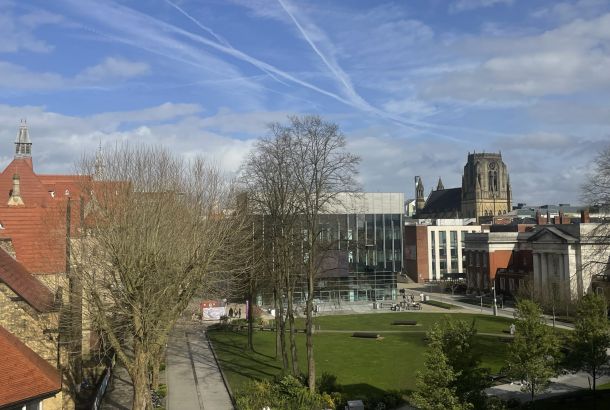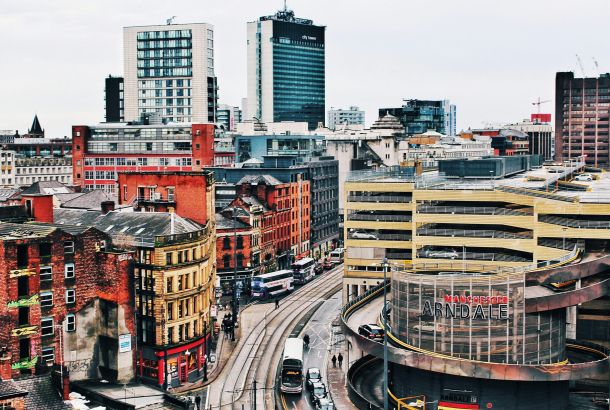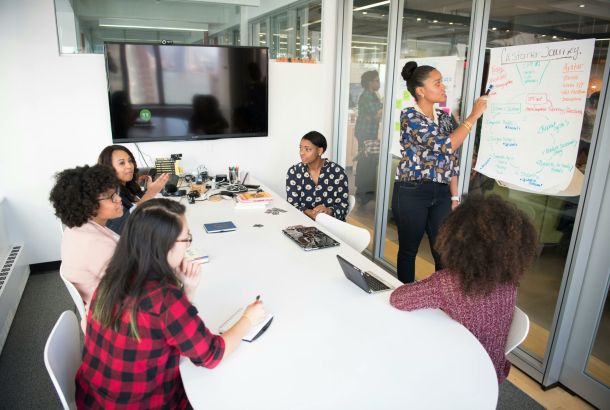Just the rich trying to get richer? Behind the picket lines of SAG-AFTRA

Words by Kiara Pinto
The top 1% flaunts Hollywood stars and elites, earning millions for reciting lines in luxury while the working-class toils day and night just to eat. News on the SAG-AFTRA strikes has been dominating social media platforms the past few months with sensationalised headlines and exaggerated claims, furthering resentment, and the narrative that the rich simply want to get richer.
A union is only as strong when every member participates in protests. The richest weren’t striking to put more money in their own pockets but for the many actors who made less than a liveable wage. Acting is no longer a sustainable profession; it was always a gamble, but the majority weren’t playing a losing hand.
Terms and Conditions Apply
Within all the misinformation about the industry lies the troubling truth: up 86% of SAG-AFTRA (Screen Actors Guild-American Federation of Television and Radio Artists) did not even qualify for basic health care. As cable became something we only watched with our grandparents, labour laws around payment retired as well. Services like Netflix, Amazon Prime, and Disney+ are now the norm, and growing more expensive with each year.
Even after earning $1 million per episode by their 10th season, the Friends cast continues to rake in $20 million annually in residuals from cable. Even in hit shows like Gilmore Girls and Orange is the New Black, actors often get less than $1 in residuals from streaming services, despite the ongoing popularity of these series.
It’s even worse for foreign shows like Squid Game which made creators and actors an astounding $0 in residuals despite earning Netflix almost $1 billion. The fair labour contract that SAG was asking for ended up costing studios less than 50 cents per subscription. The tentative agreement reached earlier this month increased wages by up to 11% for most performers.
Media flaunts wealth that’s as concentrated in Hollywood as in any other sector, primarily lining the pockets of CEOs like Bob Iger and David Zaslav within AMPTP. Instead of bargaining with actors during strikes, they opted to bulk up on PR specialists.
Artificial Intelligence, unsurprisingly, caused the biggest problem as studios demanded actors, mostly extras, create digital replica of themselves to be used in other projects without their consent. CGI “resurrecting” deceased actors like Paul Walker in Furious 7 and Carrie Fisher in The Rise of Skywalker isn’t novel. However, the recent AI-generated voice of Édith Piaf for a biopic sparked controversy for its exploitative nature, drawing significant backlash.
Tech development is an issue that the AMTPT has not been flexible with, but an agreement was reached in full consent and proper compensation in current and future works. Deals safeguarding AI from replicating writers’ work set a legal precedent for future negotiations in various industries. This was a huge development even with the lines still left blurred.
Why should we care about SAG-AFTRA?
The impact of the strikes was tremendous as Hollywood effectively shut down for months not even three years since COVID-19 as actors within the union weren’t allowed to audition, work on, or even promote any of their projects. It affected many jobs and led to massive losses for mainstream studios.
Kung Fu Panda 4, Dune 2, and Spider-Man Beyond the Spiderverse were only a few of the many productions that were delayed with many shows and movies even being cancelled or indefinitely postponed. But, as of recently, the cinema-scape has been diluted and overpopulated with sequels and remakes, maybe it isn’t so bad that a few of them have been cancelled?
The strikes encouraged many to turn to studios who accepted the reasonable requests of SAG-AFTRA and the WGA, such as A24, and foreign studios such as Studio Ghibli. I would encourage you to do the same if you haven’t already because there is a wide and beautiful world of film and TV beyond the last 20 Hollywood blockbusters.
The strikes were a very necessary battle for equitable wages and legal protections. They called for better working conditions in an industry filled with exploitation and reflected how important our responsibilities as consumers are. The emergence of AI brought a wealth of legal challenges and controversies in Hollywood and will continue to do so in it and other industries. How this develops remains to be seen and even stances we take on entertainment can reflect what side we fall upon.







